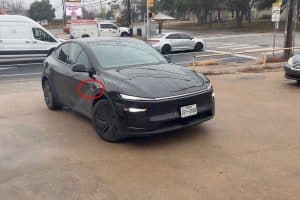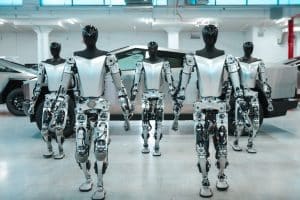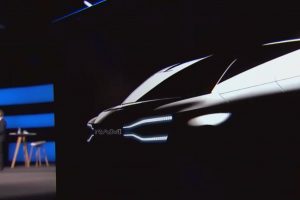The Biden administration’s proposed $4,500 EV tax credit buff for electric and electrified vehicles made in a union plant in the United States is meeting a big challenge. The union-friendly proposal is poised to undergo a review from the office of Elizabeth MacDonough, the Senate parliamentarian, who would then determine if the incentive qualifies under the US’ budget rules.
The $4,500 tax credit, which would be given to vehicles produced in the United States using union labor, stands to favor the Detroit Big Three heavily. Due to its overtly pro-union nature, the incentive has attracted a lot of criticism, particularly from automakers who are operating in the United States without union labor. These include Japanese carmakers Toyota and American EV maker Tesla.
Democratic Senator Joe Manchin, whose state of West Virginia hosts Toyota facilities, has expressed his disapproval of the proposed $4,500 tax credit addition for union-made EVs. In an interview with Automotive News last month, Manchin noted that the US government should not use tax dollars to pick winners and losers and that products made by companies should be able to speak for themselves.
“This is wrong. This can’t happen. It’s not who we are as a country. It’s not how we built this country, and the product should speak for itself. We shouldn’t use everyone’s tax dollars to pick winners and losers. If you’re a capitalist economy that we are in society, then you let the product speak for itself, and hopefully, we’ll get that, that’ll be corrected,” Manchin said.
If the Senate parliamentarian’s office concludes that the union-friendly $4,500 EV tax credit does not mesh with budget rules, Democrats may end up going back to the drawing board, or worse, remove the measure altogether, according to a Bloomberg report. Maryland Democratic Senator Ben Cardin, for his part, has noted that changes to the Biden administration’s proposed EV tax credit are already being discussed due to opposition from political figures such as Manchin.
“There have been some suggestions to alternatives by those that opposed it initially, and they are being looked at. It’s an evolving discussion,” Cardin said.
The Biden administration’s proposal would result in the current $7,500 EV tax credit being extended. An additional $500 would also be added to cars whose batteries were manufactured in the United States. These, together with a $4,500 additional credit if EVs were built in a union factory, could result in electric and electrified vehicle prices being lowered by as much as $12,500. Biden has also pushed for the buildout of an EV charging network across the United States.
Tesla CEO Elon Musk, however, noted during his interview at the Wall Street Journal’s CEO Council Summit that it would be better if the Biden administration’s proposals would not be passed. Musk even noted that he believes government support for the buildout of EV chargers is unnecessary.
“Unnecessary. I mean, do we need support for gas stations? So there’s no need for this support for a charging network. I’d delete it. I’m literally saying get rid of all subsidies. And also for oil and gas… Maybe (Tesla’s competitors) need it. I don’t know. But I think just generally, I’m in favor of deleting subsidies. When we started Tesla, there were no EV subsidies at all, and gasoline was super cheap. We did not anticipate any subsidies. That came later. The $7,500 tax credit came as a result not because of Tesla’s activity but because of General Motors’ lobbying. So I would just say delete them all,” Musk said.





